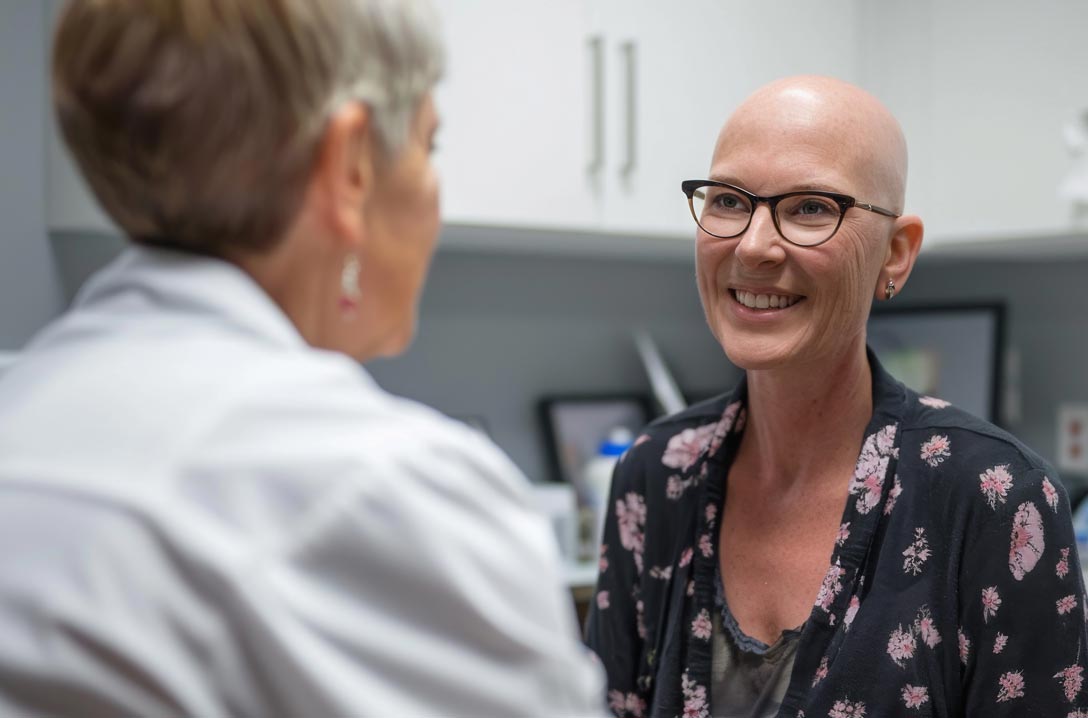Advertisment
Hair growth drug safe at low doses for breast cancer patients

Hair loss during chemotherapy can cause enough distress for some women to lose self-confidence, which experts say may discourage them from seeking chemotherapy in the first place.
Oral minoxidil is a commonly prescribed treatment for hair loss. The drug is also the active ingredient in over-the-counter Rogaine. The prescription treatment is known, however, to dilate blood vessels, and experts worry that this could increase the heart-related side effects of chemotherapy and lead to chest pain, shortness of breath, or fluid buildup.
Now, a study in women with breast cancer suggests that low oral doses of minoxidil, taken during or after cancer treatment, appear to regrow hair in most patients and without causing any serious heart-related side effects that require additional therapies or hospitalization.
Led by researchers at NYU Langone Health, the new analysis included 51 women who were treated for various stages of breast cancer, of whom 25 had some combination of surgery or radiation in addition to chemotherapy, and 26 had only the former two therapies.
“Our results should offer reassurance to breast cancer patients that there is indeed a safe way to combat their hair loss,” said study co-lead author, Devyn Zaminski, BA, a medical student at NYU Grossman School of Medicine.
While past studies have examined the use of minoxidil in breast cancer patients, the new work is among the most comprehensive to date to look at both the safety and benefits of minoxidil on breast cancer patients, the researchers say.
A report on the investigation published online Dec. 3 in the Journal of the American Academy of Dermatology.
For the analysis, the research team collected data from NYU Langone Health’s electronic health record system from 2012 to 2023. Out of hundreds of breast cancer patients who were also prescribed oral minoxidil for hair loss, the investigators identified 51 women who had taken the medication for longer than one month and who had data in their charts regarding how well the drug was tolerated. Researchers took into account age, race, and past medical history. They looked at breast cancer details, other medications, and additional demographic factors.
Based on both physician assessments and the patients’ self-reports, all who took a low dose of oral minoxidil saw either improvements in hair growth or stabilization of their hair loss within three to six months of starting the therapy.
“Based on these findings, minoxidil has been shown to be safe for patients while also being effective,” said co-senior author, Kristen Lo Sicco, MD, associate professor in the Ronald O. Perelman Department of Dermatology at NYU Grossman School of Medicine. “The effectiveness of minoxidil may therefore help patients restore their sense of self and some control in a situation where it has been visibly taken away,” said Lo Sicco.
Lo Sicco suggests that additional research is needed to affirm the new results in more patients and people with other forms of cancer and chemotherapy regimens.
The research team cautions that patients may not have disclosed mild heart-related side effects, such as minor fluid buildup, because they could have occurred without any symptoms. As a result, issues may not have been entered into the patients’ health charts. Another limitation of the study, the team notes, is that some of the assessments by physicians and patients were self-reported or observed.
Study funding was provided by NYU Langone Health.
In addition to Zaminski and Lo Sicco, other NYU Langone investigators involved in the study are Ambika Nohria, BS; Deesha Desai, BS; Michael Buontempo, MS; Avrom Caplan, MD; Mario Lacouture, MD; Michael Garshick, MD; and Jerry Shapiro, MD. Michelle Sikora, BS, served as study co-lead author, and Daniel R. Mazori, MD, served as study co-senior author.
Another investigator involved in the study is Elise Olsen, MD, at Duke University in Durham, N.C.





